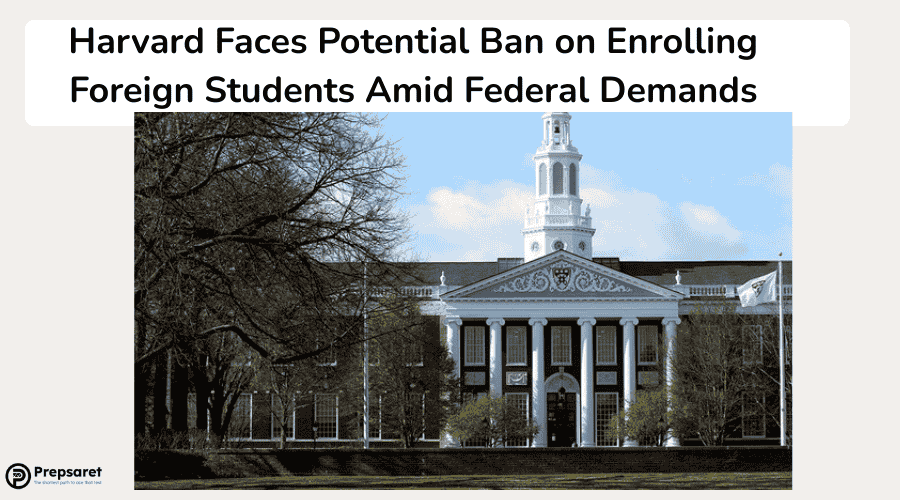Key Takeaways:
- The Trump administration has frozen over $2.3 billion in federal funding to Harvard University.
- DHS demands Harvard submit detailed records of foreign students’ “illegal and violent” activities by April 30, or lose the ability to enroll international students.
- Harvard has responded by affirming its legal compliance but refuses to surrender its institutional independence or constitutional rights.
- The administration is also considering revoking Harvard’s tax-exempt status.
- Civil rights groups warn of academic freedom violations and conflation of peaceful protest with extremism.
The Trump administration has intensified its standoff with Harvard University by freezing billions in federal funding, threatening to revoke its ability to admit international students, and urging the IRS to strip its tax-exempt status.
These moves come as part of a broader government response to pro-Palestinian demonstrations on elite campuses across the country.
DHS Demands Foreign Student Records
On Wednesday, Department of Homeland Security (DHS) Secretary Kristi Noem announced the cancellation of two DHS grants totaling $2.7 million to Harvard, citing the university’s alleged failure to monitor “illegal and violent activities” by international students.
Noem issued a deadline of April 30 for Harvard to produce records concerning visa holders involved in disciplinary incidents, threats, or protest actions.
“If Harvard cannot verify it is in full compliance with its reporting requirements, the university will lose the privilege of enrolling foreign students,” Noem said in a statement.
The potential revocation of Harvard’s certification under the Student and Exchange Visitor Program (SEVP) could block enrollment of new international students—a group that currently comprises 27.2% of the student body.
Harvard’s Response and Federal Retaliation
A spokesperson for Harvard acknowledged receipt of DHS’s letter but stood firm: “We will not surrender our independence or relinquish our constitutional rights,” the university said, while affirming its commitment to follow legal obligations.
This latest clash follows the Education Department’s earlier decision to freeze $2.3 billion in federal grants and contracts to Harvard. The administration has also pushed for the elimination of diversity, equity, and inclusion (DEI) programs and merit-based reforms in admissions.
Additionally, the White House is reportedly urging the Internal Revenue Service to revoke Harvard’s 501(c)(3) tax-exempt status.
A decision from the IRS is expected soon. Harvard responded that such an action would be legally unfounded and would jeopardize student financial aid and vital medical research.
Find Out: Does Harvard Accept GED
Political and Legal Implications
President Trump’s administration has framed the pro-Palestinian protests as breeding grounds for antisemitism and foreign radicalism. “With a $53.2 billion endowment, Harvard can fund its own chaos—DHS won’t,” Noem said, accusing the institution of harboring “anti-American, pro-Hamas ideology.”
Critics, however, argue that the administration is conflating peaceful advocacy for Palestinian rights with support for extremism, infringing on academic freedom. Protesters, including Jewish student groups, maintain their demonstrations are in opposition to Israel’s military actions in Gaza—not in support of Hamas.
Human rights advocates have also expressed concerns over Islamophobia and anti-Arab sentiment, especially as the administration has moved to revoke hundreds of student visas and explore deportations of protest participants.
As tensions escalate, Harvard remains a focal point in the Trump administration’s campaign against perceived campus radicalism, with broader implications for universities nationwide.
Also in the News:

